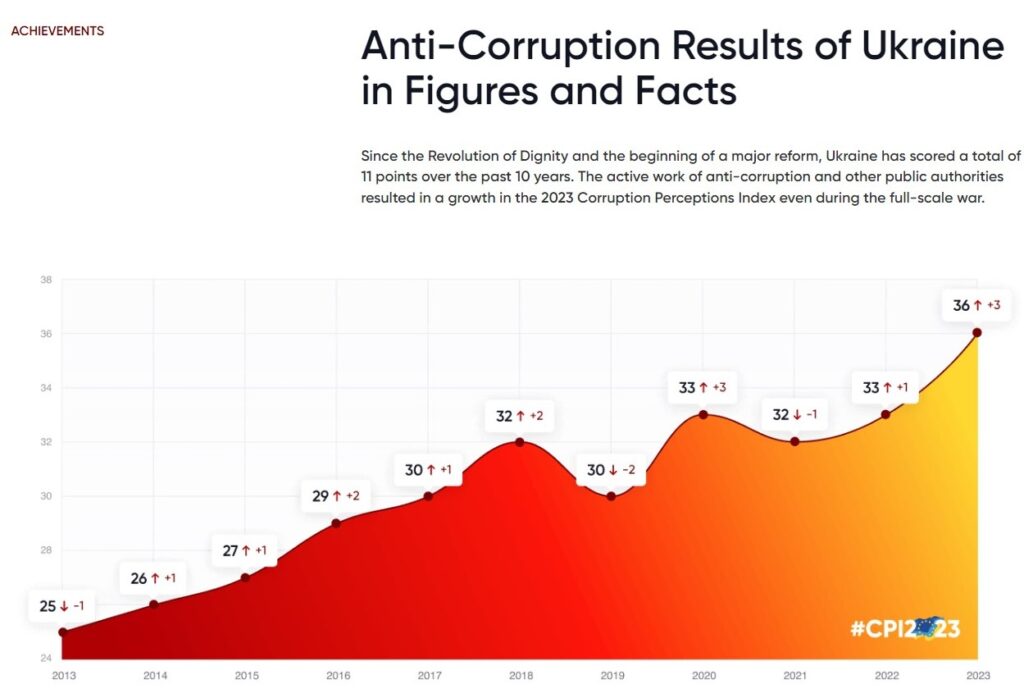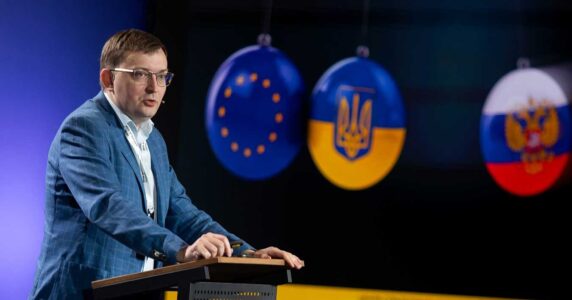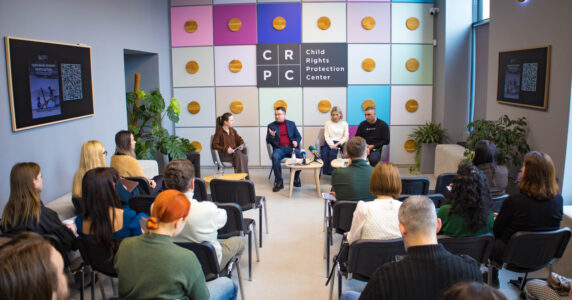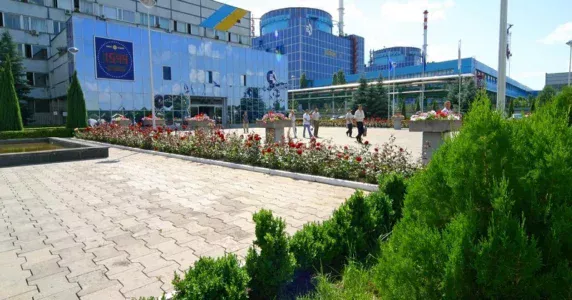Navigation and useful materials
Ukrainians see the fight against corruption as the second most important challenge after the Russian aggression. Driven by the demands of civil society and Ukraine’s commitment to join the EU since 2014, the Ukrainian government has implemented a number of measures to prevent corruption and prosecute related crimes. Since then, the foundation for Ukraine’s anti-corruption infrastructure has been set.
Some international media tend to misrepresent the progress Ukraine made in the fight against corruption for the last decade, claiming that the country lacks transparency and effectiveness to join the European Union. Russia launches disinformation campaigns abroad on a regular basis using the same arguments to undermine the trust of Ukraine’s international partners and their financial and military aid.
What is the indicator of corruption that defines whether the country is ready for EU membership? In practice, there is no recorded one. However, the scoring system of the globally recognized Corruption Perceptions Index could be helpful for objective evaluation.
Let’s compare Ukraine’s progress to that of other countries when they started negotiations on joining the EU. To make the comparison more relevant, we will consider the experience of the EU member states who joined the EU since its biggest enlargement in 2004.
Fact 1. Ukraine has shown significant improvements in its corruption perception since the reforms started
Over the past 9 years, Ukraine’s Corruption Perceptions Index has risen by 10 points, reaching a score of 36 in 2023. This progress is the result of anti-corruption measures to improve the integrity, transparency, and efficiency of public administration. The latest CPI ranking in 2023 shows that Ukraine is one of the 17 fast-progressing countries, having gained another 3 points last year. It is important to note that, globally, the pace of the fight against corruption is slowing down.

Fact 2. Ukraine’s performance in fighting corruption is close to that of other countries before they joined the EU
Ukraine’s results during the EU negotiation process are close to the corruption perception indicators in other countries at the time they started the accession process, according to Transparency International. Both Romania and Bulgaria scored 33*, Latvia – 34*, Lithuania – 41*, Slovakia – 35* in 2000. Croatia’s score in 2005 was 34*. Thus, the CPI average value varied from 33* to 41* points during the great EU eastern expansion in the early 2000s. This is also comparable with the current scores of other EU candidates: Montenegro – 46, Moldova – 42, Albania – 37, Serbia – 36, Bosnia and Herzegovina – 35.
Note: *The CPI had been calculated on a 10-point scale until the 2000s, when it was changed to a 100-point scale. In this article, results prior to 2000 have been converted according to the latest methodology.
Fact 3. EU candidate countries make significant progress in anti-corruption reforms during the negotiation process
The progress made by EU candidate countries during the negotiation process demonstrates the positive impact of accession on reforms, as the implementation of anti-corruption measures is crucial for the EU integration.
For example, Slovakia improved its score by 5 points between the start of negotiations in 2000 and accession in 2004, from 35 to 40. Lithuania’s score also increased by 5 points in four years, from 41 in 2000 to 46 in 2004. Latvia showed a dramatic and steady improvement of 6 points, from 34 in 2000 to 40 in 2004, the year it joined the EU. This trend suggests that EU integration can significantly enhance a country’s commitment to anti-corruption efforts.
Fact 4. Ukraine shows positive dynamics in improving perceived corruption
During 2014-2023, after the Revolution of Dignity and the beginning of large-scale anti-corruption reforms, the average annual increase of Ukraine in CPI was 4.2%. This rate is similar to what other European countries experienced in the course of joining the EU, challenging the idea that Ukraine’s corruption levels make it unfit for membership.
For comparison, Poland’s CPI growth rate over the same period was -1.2%, showing a slight decline. Latvia had a CPI growth rate of 1%. Bulgaria saw a modest increase of 0.6%.
Fact 5. Other countries also faced concerns about corruption before joining the EU
Public discussions about corruption in EU candidate countries are not unique to Ukraine. Other countries faced the same concerns about their readiness to join the Union at the time: critics tended to argue that anti-corruption laws and institutions were not strong enough to ensure transparency, fearing that it could negatively affect the EU’s image. Nevertheless, those countries made it to the EU membership, having completed the necessary reforms.
Ukraine learns from the best practices
Finally, Ukraine learns from the experience of other countries that had made a similar journey in preventing and fighting corruption before the EU membership. Therefore, Ukraine is implementing a State Anti-Corruption Programme designed to ensure that anti-corruption efforts are a priority across all sectors and they meet the standards of the European Union. Similar programmes were developed by other countries on their path towards EU integration.

Photo: tanaonte / Adobe Stock
By choosing to integrate with the EU, Ukraine has committed itself to increasing efforts to promote integrity in its public sector and to establishing institutions to prevent and fight corruption. Eradicating corruption is a tough challenge for any country. While EU integration is an important milestone in the countries’ history, it does not mean that the fight ends there.
It is in Ukraine’s best interest to continue to establish new practices and make public services more transparent and efficient, especially in the face of continued Russian aggression and post-war reconstruction. Corruption cannot be used as an excuse to prevent Ukraine from joining the EU. On the contrary, the whole process of EU integration is an opportunity for Ukraine to reach the standards and align its laws with those of its EU partners, and develop an even more effective state for its citizens.
Pavlo Buldovych, Head of the Department for Coordination of State Information Policy on Corruption Prevention at the NACP
Nataliia Druhak, Strategic Communications Advisor to the NACP
Marta Yurkovska, analyst intern at the NACP
Source article war.ukraine.ua
If you have found a spelling error, please, notify us by selecting that text and pressing Ctrl+Enter.


